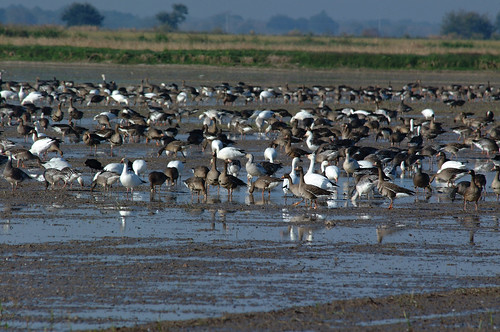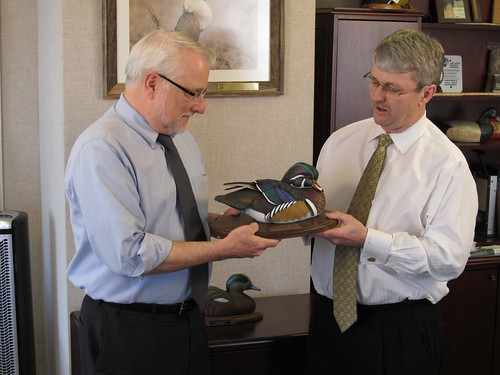Just recently, the wildlife conservation organization Ducks Unlimited presented me with their 2011 Wetland Conservation Achievement Award—Special Achievement category for the Migratory Bird Habitat Initiative (MBHI) and our record signup for the Wetlands Reserve Program (WRP).
It was an honor to accept this award on behalf of all Natural Resource Conservation Service (NRCS) employees and numerous partners, including Ducks Unlimited, U.S. Fish and Wildlife Service, USA Rice Federation, National Cotton Council, National Association of Conservation Districts, The Nature Conservancy, and National Audubon Society .*
But let me back up a bit on MBHI.
When the magnitude of the Deepwater Horizon oil spill became apparent in spring 2010, I knew our agency would be involved in mitigating its effects.
The oil spill had the potential to devastate populations of water birds, shore birds and other species in wetland areas all along the Gulf Coast. Nearly 40 percent of North America’s migratory birds travel through the Mississippi and Central flyways. How could we provide habitat for these birds to rest and feed away from oil-contaminated coastal marshes?
That’s where MBHI came in. The idea was to create new wetland habitat for birds all along their migration paths that would provide safe haven until the danger posed by the oil spill had subsided. This was accomplished by using NRCS’ technical expertise, existing Farm Bill programs and numerous partnerships to help land owners and managers flood suitable lands (particularly rice fields and abandoned catfish ponds) and establish plants and aquatic organisms that the birds could feed on.

Of course, time was of the essence. We needed to take action fast if we were going to protect these birds as they followed their instincts south across Missouri, Arkansas, Louisiana, Texas, Mississippi, Alabama, Georgia and Florida.
We also needed to make sure that the wetlands we created were high quality and located in areas that would be useful to the birds. Our partners carefully identified high-priority areas in each state. Then NRCS put out a call for proposals.
We were blown away by the response. We originally expected to get 100,000 or 150,000 acres signed on for MBHI, and ended up with more than 470,000 acres—including nearly 200,000 in Louisiana.
What did the birds think? Well, I’ve seen photos from all eight MBHI states, and the results are astounding. Every single site has been visited by hundreds, sometimes thousands of birds. The photos are incredible. From ducks to egrets, birds have found our sites over and over.
What did the farmers think? Well, the acres signed up speak for themselves. The beauty of MBHI is that after producing high-quality habitat for migratory birds, these lands will be producing food for the nation.
While the long-term impacts of the oil spill are not known, I for one am sure that they are less severe than they would have been without MBHI. But we’ll know more once the scientists finish assessing the project over the next year.
*Other partners: National Fish and Wildlife Foundation, American Farm Bureau, Environmental Defense Fund, Mississippi Fish and Wildlife Foundation, Gulf Coast Joint Venture, Association of Fish and Wildlife Agencies, and National Wildlife Federation.
Read more about the Migratory Habitat Bird Initiative
Check out more conservation stories on the USDA blog
Follow NRCS on Twitter.

